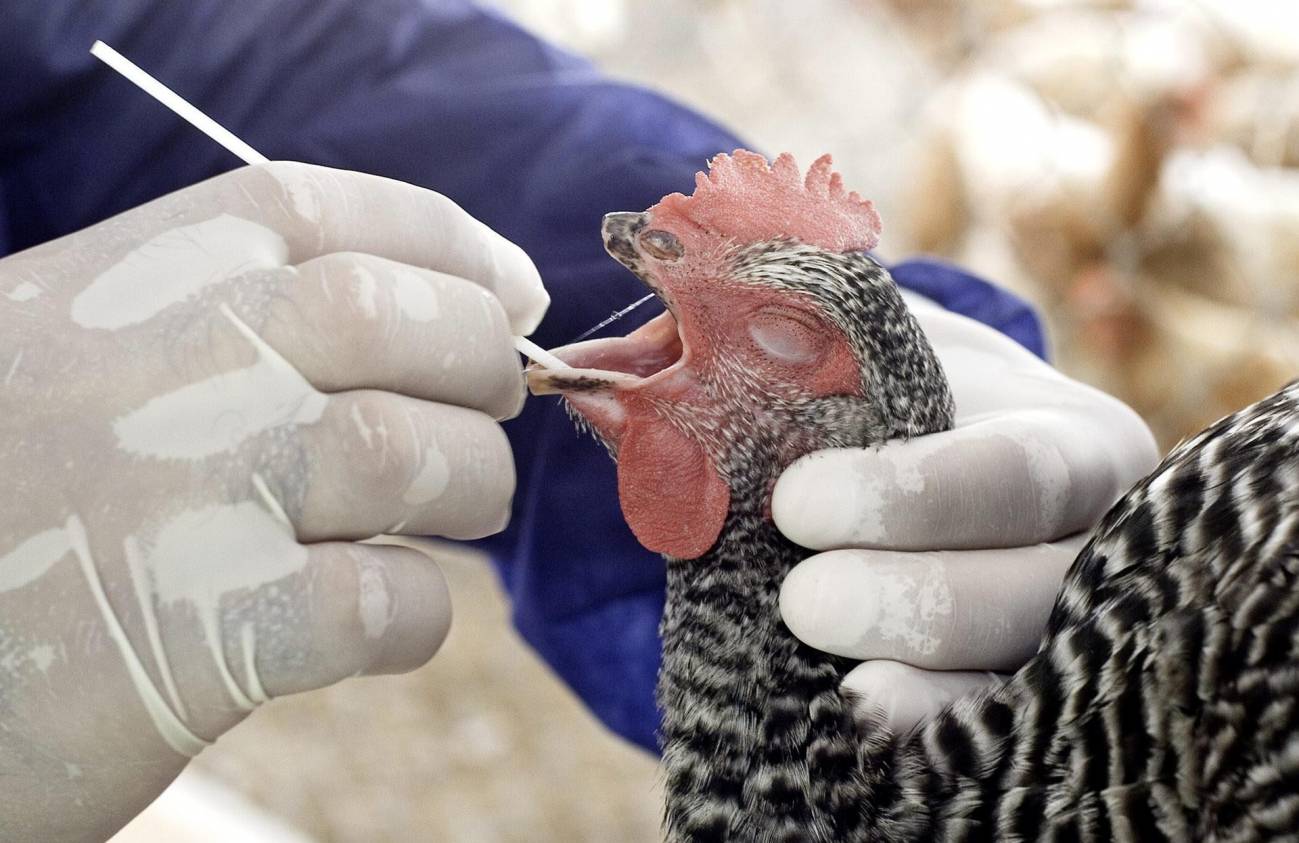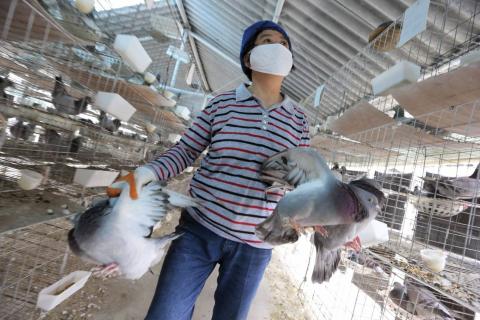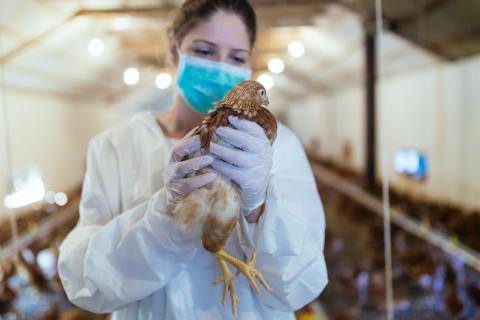Humans may already have antibodies capable of recognizing avian influenza virus, study shows
A team of researchers from the USA has analyzed the B lymphocytes of seven healthy people in whom no exposure to H5 influenza viruses, such as the avian flu virus, had been documented. The results show that they present antibodies capable of recognizing this type of virus, which, according to the authors, could represent “a first line of defense” in the event of a pandemic. The results are published in the journal Science Immunology.

Adolfo - Anticuerpo Gripe (EN)
Adolfo García-Sastre
Director of the Institute for Global Health and Emerging Pathogens at Mount Sinai Hospital in New York
The article is of very good quality. A very detailed study is made of the repertoire of H5 antibody-producing cells already present in circulation in humans prior to exposure to H5 using state-of-the-art technology.
The article implies that we are prepared for our immune system to respond quickly if we are infected by H5 virus, which could reduce the cases of severe disease in the event of a pandemic.
The characterized cells are still a minority component and it is known that human infections with H5 can be fatal, as this has happened very infrequently in the past. Although the data indicate that we would respond very quickly to vaccination in a favorable manner, and that only one dose of vaccine is likely to be needed to achieve protection, it does not imply that if an H5 pandemic were to be triggered it would not be of even greater severity than SARS-CoV-2. We cannot be sure how severe such a pandemic would be, if it occurs, because even if the antibodies we already have help, we still need to expand these antibodies during infection to completely eliminate the virus, and if the virus replicates too quickly, the expansion of antibodies may come too late for some people, and severe disease may develop.
Nistal - Anticuerpo Gripe (EN)
Estanislao Nistal
Professor of Microbiology at the Faculty of Pharmacy
The study is relevant and interesting in that it identifies in different people the presence of B lymphocytes capable of producing antibodies that block the entry of an H5N1 virus that has not yet produced a pandemic outbreak in humans. It is particularly noteworthy that these people have never been infected by H5N1, but it is still possible to have both these B lymphocytes and the antibodies they can generate against the virus, to have a defense against the virus without ever having seen it.
However, this would most likely not be enough in some people in case of infection. Infection by a new virus such as H5N1 that has a high capacity for replication and transmission will require that these B lymphocytes be stimulated to proliferate and increase antibody production considerably, and thus better prevent infection or reduce the disease it causes and the transmission. The study serves as evidence of the potential to stimulate the production of antibodies that can block the virus.
The description fits the expectation that we may have the potential to produce antibodies to viruses, infectious agents or antigens in general that we have never seen before. It is an intrinsic capacity of B lymphocytes that allows us to develop immune responses to potentially a much larger number of antigens than we will ever detect in our lifetime. This is also true for the hemagglutinin of the H5N1 viruses. The capacity of some of these antibodies to block hemagglutinin and to describe mechanistically how they do so at the structural level is interesting. This could be useful if they are better characterized as an antiviral tool in case of need, or to improve or adapt these antibodies to the needs that may arise in case of trying to contain an outbreak.
[Regarding possible limitations] The study could have considered the potential evolutionary diversity of the hemagglutinin of H5N1 viruses. These viruses are currently circulating worldwide in birds and their ability to infect some mammals, both wild and farmed, has been described. In this infection of mammals, such as pigs or cows, the virus is accumulating mutations that can potentially adapt to further transmission between animals, including humans. Some of the mutations that the virus must acquire in its hemagglutinin are known. It would have been interesting to determine whether any of the antibodies described could block this hemagglutinin with greater transmission potential with the possibility of being used against an H5N1 virus with greater capacity for transmission between humans.
Gustavo - Anticuerpo Gripe (EN)
Gustavo del Real
Senior scientist in the Biotechnology Department at INIA-CSIC
This work demonstrates that the human virgin B cell repertoire contains a high frequency of cells capable of recognizing with significant affinity the main specific antigens of the highly pathogenic H5N1 viruses causing avian influenza. In addition, it is shown that they recognize the different known variants of H5 and that 35% of the antibodies produced by these virgin lymphocytes can neutralize the virus. In summary, the work provides very relevant information in three aspects:
- The presence of virgin B cells in our lymphocyte repertoire, capable of recognizing H5N1 virus antigens, would constitute a first line of defense against this potentially pandemic virus.
- The study of the virgin lymphocyte repertoire of humans can help to understand the characteristics of the course and pathogenesis of infection, not only by H5N1 viruses, but also by other infectious agents.
- It provides key information for the rational design of effective vaccines against viruses.
Feldman et al.
- Research article
- Peer reviewed
- People



